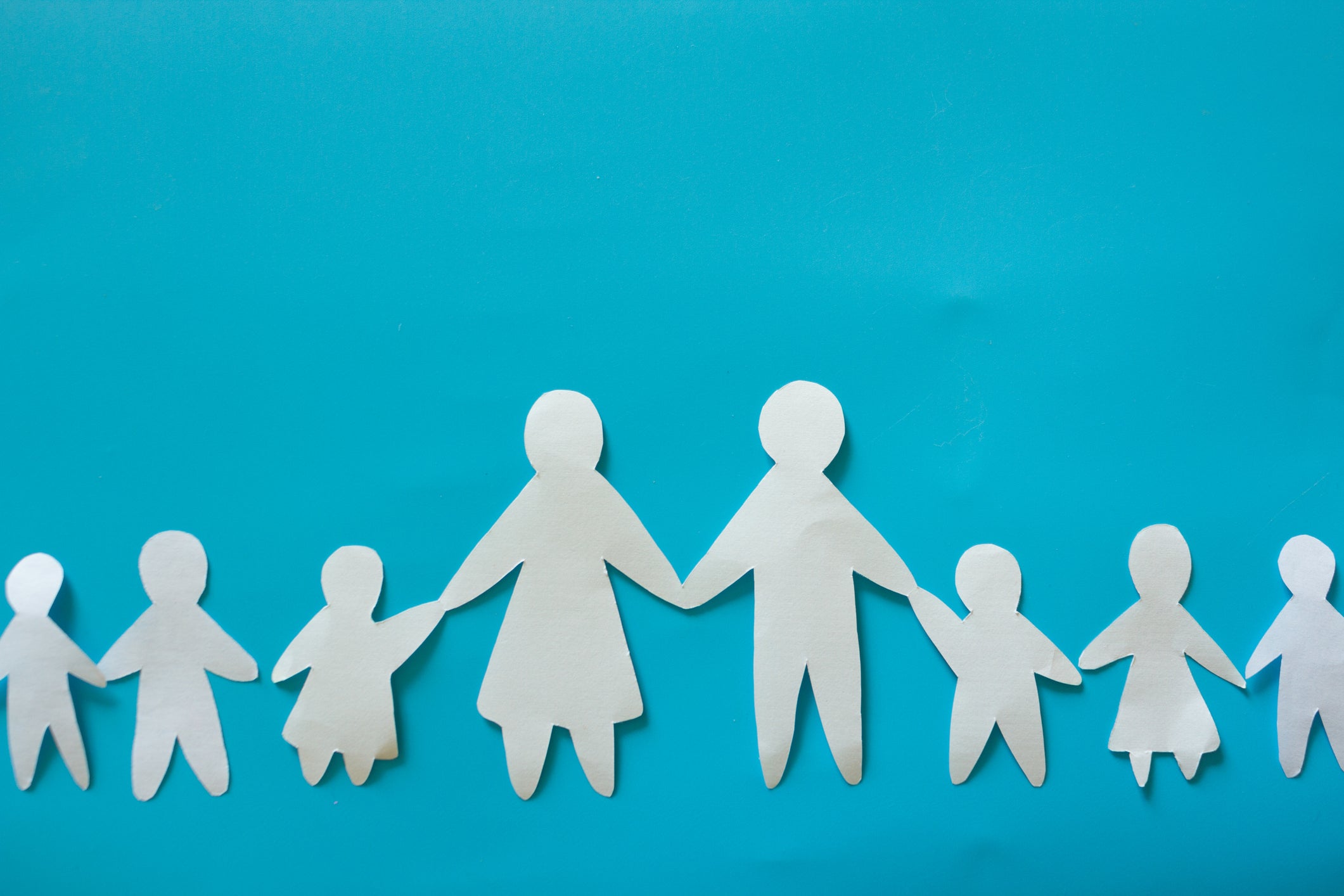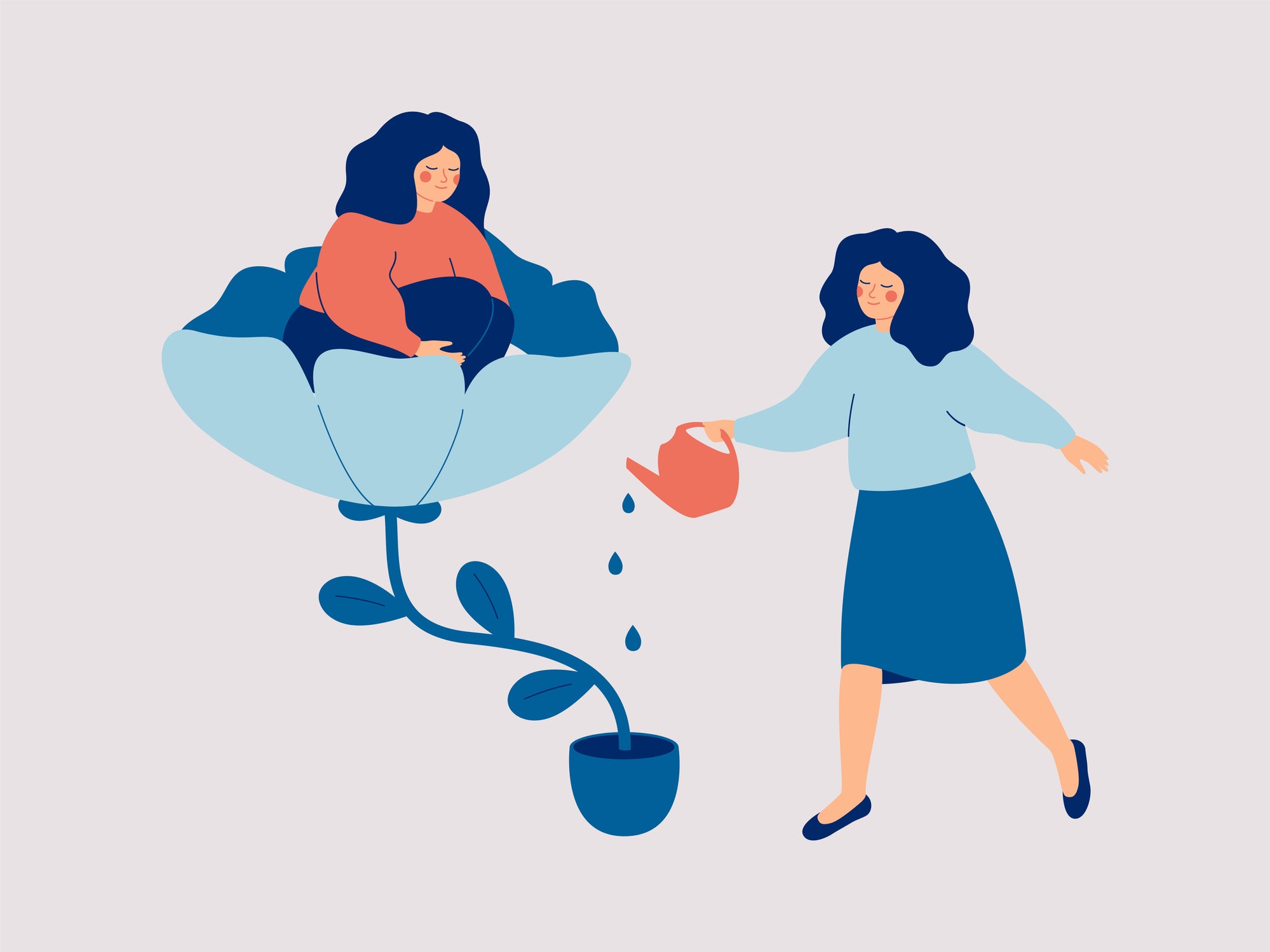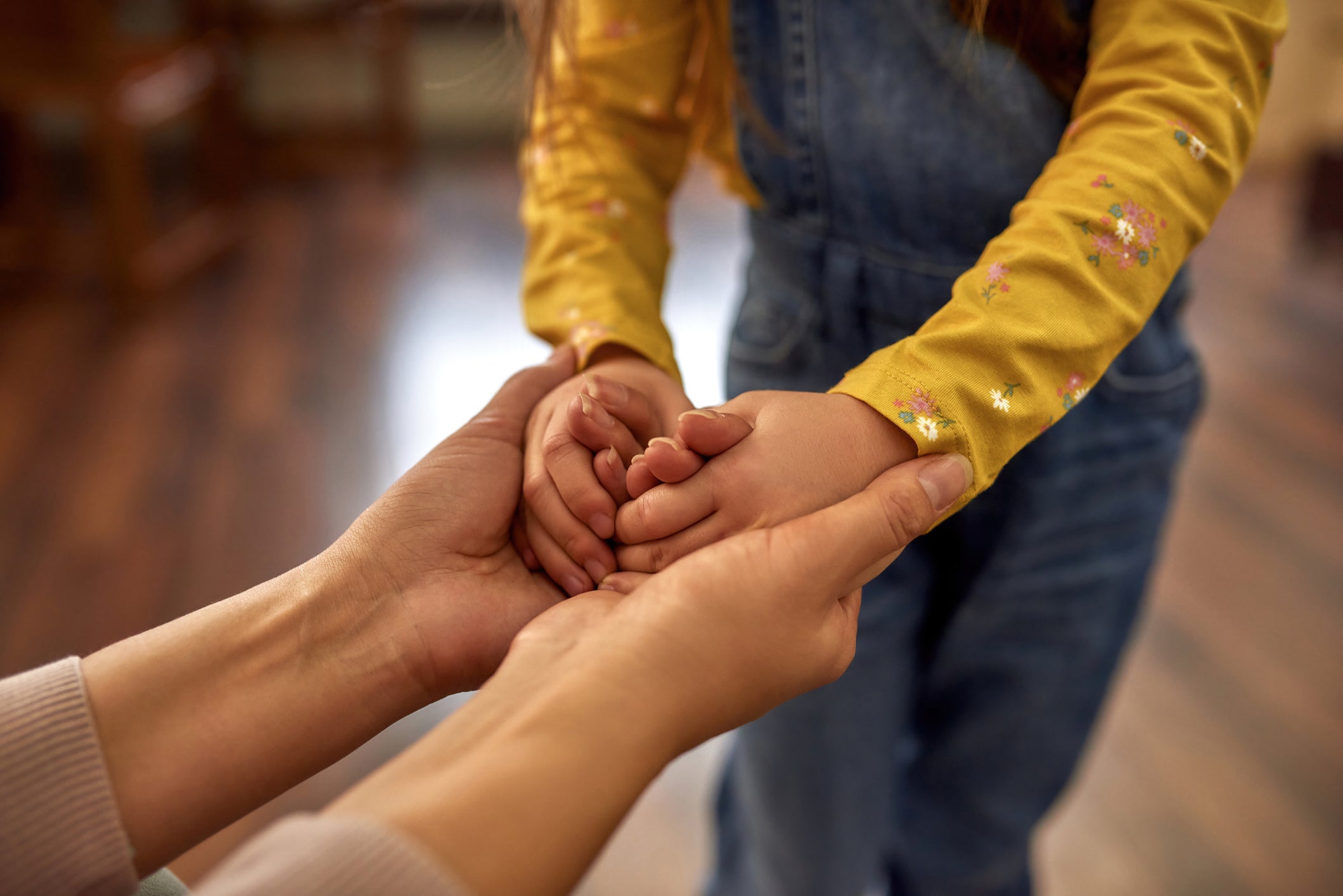Where have all the foster carers gone?
While there has been a huge increase in the number of young people needing care, the number of potential foster parents has decreased, says Lauren Crosby Medlicott. Why is this and what can be done?


Out of the 12 million children living in England, more than 80,000 are being looked after by local authorities. At the current rate of growth – 2 per cent per year – this figure could reach 100,000 in the next decade.
Charities like Barnardo’s, which are working to place children into appropriate foster care settings, are feeling immense pressure as referrals flow in. Between August 2021 and July 2022, 19,996 children were referred to Barnardo’s UK-wide fostering service, a 28 per cent rise as compared to the previous 12-month period.
“Some children will always need to come into care, but there has been a huge increase in the numbers in recent years,” says Nicola Williams, UK head of service development and quality at Barnardo’s Fostering and Adoption. “This has placed further strain on an already struggling system. Reduced funding has left many local authorities having to focus on support for children who have already suffered serious harm, with little left for early support for families.”
During the last decade, spending by local authorities on early intervention services for children and young people fell by £1.9bn. “If we don’t help families early, we risk problems escalating and more children needing to come into care,” explains Williams.
Reduced funding for early intervention has led to increased numbers of children being referred to social care, but there aren’t enough carers to provide safe, therapeutic homes for the thousands of vulnerable children who need them.
“There is an urgent need for new foster carers at a time when we have seen a decline in the number of people coming forward to be foster carers,” says Williams. “Uncertainty about the future, including the financial impact of the current cost-of-living crisis, may have made some people reluctant to enquire, but there is also the continued long-term effect of the pandemic which resulted in a significant reduction in the number of available foster carers.”
Although taking on the role of primary carer for a child who has been through trauma is a massive commitment, many who have decided to become foster carers have described it as a rewarding and enriching experience.
After taking a child development module in high school, Hannah* decided at the age of 16 that she wanted to help children with adverse childhood experiences. Nine years later, Hannah began the application process to become a foster carer, while working as a learning support assistant at a local primary school in Kent.
“I was really aware there were a lot of barriers for me becoming a foster carer,” remembers Hannah, now 27. “I definitely had my hesitations because I knew I didn’t fit with the typical stereotype of a carer. I was single and didn’t haven’t children of my own, but the social workers I spoke to from a non-profit called Diagrama said they would work with me to make it happen.”
We know from our experience of supporting children in the care system that teenagers in care often get a bad reputation. They can have struggles and bad days just like everyone else
To start, two young children were placed with Hannah for a short stint of respite care. “Those two placements had more of a holiday vibe,” she says. “My goal was just for them to have a nice time.”
In May 2021, an eight-year-old little boy came to stay with Hannah for a longer-haul stay and he is still with her now.
“It was a massive change,” she recalls, reflecting on the first days of having her foster son. Although Hannah lived with her parents, she took full responsibility for the care of the child. “I had to be constantly available and switched on for him, which is obviously really draining. I wasn’t able to be sociable in the evenings for a very long time because he wasn’t ready for me to go out. Downtime doesn’t exist in the same way anymore.”
As they have fallen into a routine over the last 18 months, Hannah feels life has become more relaxed. “He is very settled, very happy,” she says. “We have such a good relationship. Although I haven’t had my own children, he feels like my child. He’s very loved and accepted, very much part of the family.”
Despite the sacrifices made, Hannah doesn’t feel an ounce of regret. “I would choose it all again,” she says. “He is flourishing and making so much progress. I wouldn’t ever choose not to have him.”
In the last year, the number of older children referred to Barnardo’s fostering services has dramatically jumped in the UK, with a rise of 29 per cent from August 2021 to July 2022.
“We are also seeing more and more older teenagers come into care because we need to keep them safe from threats such as gangs and criminal and sexual exploitation,” says Williams. “We know from our experience of supporting children in the care system that teenagers in care often get a bad reputation. They can have struggles and bad days just like everyone else, but they are also incredibly resilient, fun and caring. Fostering teenagers is not as challenging as some people may think and can be extremely positive.”
At 15, Samuel was approached after school by social workers who informed him he wouldn’t be going back home to his mother that night. “I was distraught and upset – I didn’t want to go into foster care,” the now 18-year-old says. “I knew my mum loved me to bits, but unfortunately, she had the love but not the resources. There were days we couldn’t even get food in the house.”

The first night he was brought to stay with his foster carers – a married couple who had another young foster child and two dogs – Samuel clung tightly onto a Build-a-Bear teddy from home as he went to sleep.
Three years later, Samuel is still living in Devon with the same family. “We’ve had our ups and downs, but we do all care for one another,” he reflects. “I’ve grown to accept that maybe it was the best thing for me to go into foster care. I think without it, I wouldn’t have discovered who I truly was. I’ve had new experiences that have helped me build up my confidence. It turned out quite alright in the end.”
Julie has been fostering teenagers since the summer of 2020 after years of working with children in need in other capacities. “I just wanted to help them pre-independence,” she says. “I wanted to be able to do work with them around increasing their self-esteem, self-worth, and confidence.”
After ample amounts of training, Julie welcomed her first foster child, a 16-year-old girl with a history of self-harming, into her home. “Sometimes your initial perceptions of what you think a young person could be like are different to when you actually meet them,” Julie says. “You read details about a young person, but that information may only be a summary of what you need to know about their challenges – not who they really are as a person. This girl was such a lovely sweetheart. When I met her, it wasn’t as bad as I thought it would be.”
During her stay, Julie remembers a time she found a bath of what looked like blood. “I panicked,” she remembers. “I thought she had self-harmed in the bathroom. I banged on her door and then burst in the room, and there she was with pink hair. She told me dying her hair had all gone wrong. There I was with my preconceived idea of what happened, and the child was just trying to make her hair look beautiful.”
There have been experiences Julie said have genuinely been a cause for concern. Once, a child didn’t come home and Julie had to ring the police. On another occasion, Julie was worried she could no longer keep a child safe – that they may be getting involved with a gang – and had to request the placement be terminated.
Even though there have been challenges, Julie doesn’t doubt she will be fostering for as long as she is needed. “I often get asked why I foster teenagers,” Julie says. “Teenage years, irrespective of your background, can be the most challenging years of your life. All a lot of children need is a bit of self-worth and support. I find it very rewarding to help young people. I know the difference it can make to them.”

Several children who have lived with Julie as teenagers have stayed in touch with her as they transition into adulthood. “When you help a young person, they are so grateful,” she concludes. “Some of them have nothing and no one and come with backgrounds you could never imagine. You can really make a difference in their lives.”
At Barnardo’s the average age foster carer is 55, with many being even older, and the charity is noticing an increasing number are starting to retire due to their advancing age. “Our foster carers are incredibly loyal and they stay with us for a very long time, but we do have a generation who in some cases have been fostering for over 20 years,” says Williams. “It’s understandable that there comes a point when you decide being an active foster carer is no longer the right thing for you. Many of our most experienced foster carers are now retiring or nearing retirement age, meaning there stands to be even fewer carers able to offer foster homes to the record number of children now needing care.”
Catherine and her husband have been fostering for the last 18 years. At 63 years old, Catherine has recently stopped fostering to focus on caring for her own daughter and grandchildren. Over the years, she focused on fostering teenage boys who had previously broken placements, sometimes having up to three boys staying in their house. “It was interesting and really challenging,” she reflects. “Then for the last five years, we did parent and child fostering – where we would have a small family move into our home so we could support them in parenting skills and help assess if they are able to move back into the community, or if the child needs to be removed.”
Some of the very challenging children have also been the relationships that have given Catherine the most fulfilment. She recalled a young person who grabbed a fishing knife and held it to Catherine’s throat. “Even though I could understand where he was coming from – there was a lot of trauma going on – it was a really difficult moment,” she says. “I was pretty certain he wouldn’t use it. He had gotten to a point of desperation and didn’t know what to do. It was an instinct to grab the knife.”
Following the incident, Catherine rang the police, and the young boy was arrested. It would have been the perfect excuse not to have the child back in the house. “But we did have him back and he stayed with us for another four years until he was 19,” says Catherine. “We’re still in touch with him now.”
Catherine knows the impact trauma has on a young person’s brain and has learned to give them plenty of space, so they don’t feel cornered or attacked.
Everything in Jessica’s life has taken a backseat so she can parent her niece, but it was only when she started receiving support from Kinship that anyone asked her how she was coping
However, despite her best efforts, there was one child whose placement she had to end once the child became involved with drugs. “With fostering, you may not see rewards immediately. A lot of what these kids are going through is about survival. We couldn’t keep him because of the impact on other people in the house,” says Catherine, who provided a loving home to the child for four years. “But now, he is actually married with two children. Seeing him as a father is just amazing.”
Her time as a foster carer has ended, and Catherine says it is “tragic” there aren’t enough appropriate and varied foster carers available to take in children.
“We have record numbers of vulnerable children needing foster care, and we urgently need action to help make sure these children have the best possible chances in life,” Williams urges. “We also urge the government to make fundamental changes to improve care, support and outcomes for vulnerable children.”
Barnardo’s is calling for the government to act on the findings of the Independent Review of Children’s Social Care, including the recommendation to recruit 9,000 new foster carers in the next three years.
To alleviate the burden placed on the foster care system, the charity Kinship is calling for more support for kinship carers in the UK who are looking after more than 180,000 children.
“Kinship carers are relatives and close friends who step up to look after a child often in times of crisis when their parents are unable to care for them,” explains Dr Lucy Peake, Kinship CEO. “Relatives often get a call out of the blue from social services asking them to take in a child there and then, explaining that if they don’t, the child will be placed in the care system. Unlike foster carers or adoptive parents, they do not have a period of preparation, support and training.”
The beauty of kinship care is that children can stay with their own families, where they feel loved, safe and secure, rather than going through the care system, but without support, Kinship is afraid kinship placements may break down.
Jessica, received a call from Social Services in April 2020, asking her to come to collect her niece. “I had to leave work immediately and go straight to pick her up,” Jessica remembers. “To start, I panicked, not knowing the ins and outs of what was going on. But ultimately, I knew this eight-month-old little girl needed me.”
After a short time, Jessica and her partner were asked to have the little girl permanently. Her employer graciously approved of flexible working times so Jessica could both look after her niece and provide financially, but it was only one hurdle that had to be overcome as Jessica took responsibility for the care of a baby. She had to contend with her sister who has taken Jessica to court several times. Not ever having had a child before, Jessica was thrown into the deep end of parenting without any preparation or practical support. Most painfully, Jessica has delayed having children of her own.

“We had planned to get pregnant in 2020, but we obviously we have put that on hold,” the 33-year-old says through tears. “Those plans are still on hold now.”
Everything in Jessica’s life has taken a backseat so she can parent her niece, but it was only when she started receiving support from Kinship that anyone asked her how she was coping with the major change of circumstance.
“Up until then, not one social worker asked how I was feeling,” Jessica says. In retrospect, she would have appreciated practical, financial, and emotional support as she took on such a mammoth responsibility. “Ultimately though, I would have done exactly the same thing.”
Jessica has had the benefit of continuing to work, but many foster carers are struggling without financial support, in addition to the lack of practical and emotional support.
“Unlike foster carers, they don’t have a right to a financial allowance and so they feel very vulnerable,” says Peake. “Many have to give up their jobs, sell their homes and use life savings and pension pots to care for their kinship child because they are failing to receive the crucial support they and their kinship children need. We know that kinship carers are struggling to heat their homes and put food on the table this winter. Without urgent support thousands of carers who have been pushed to the brink of despair may no longer be able to look after the children they love, risking an influx of children into the care system.”
For the thousands of children who have been taken out of their family homes, life can feel endlessly unsettled unless there are foster and kinship carers fighting in their corner. While charities campaign for systemic change in children’s social care and support for carers, they are begging for more people to welcome children into their homes.
“You could transform their childhood and their future,” says Williams.
* The names of the carers have been changed to protect the identities of the children involved




Join our commenting forum
Join thought-provoking conversations, follow other Independent readers and see their replies
Comments